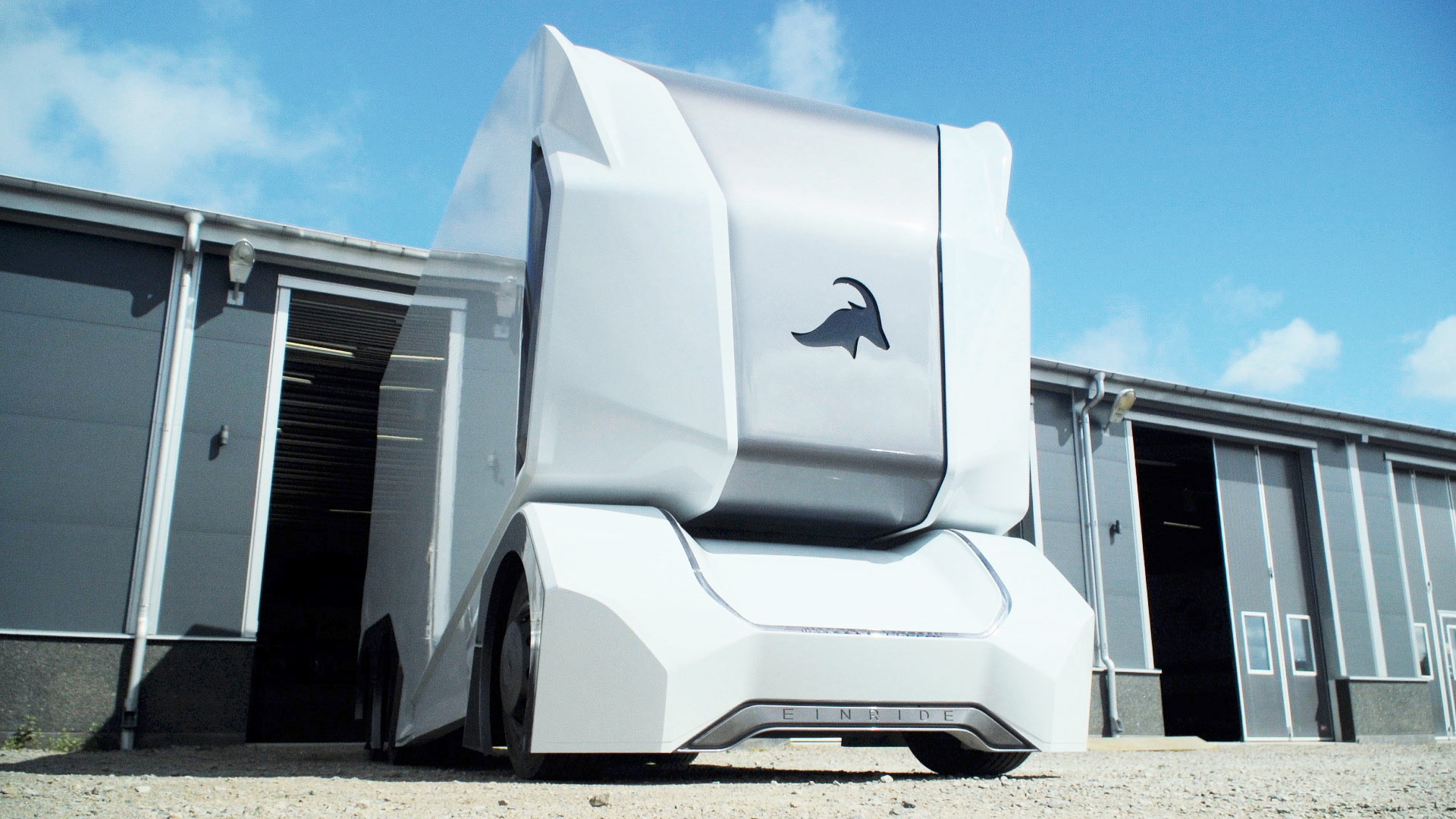T-Pod autonomous truck
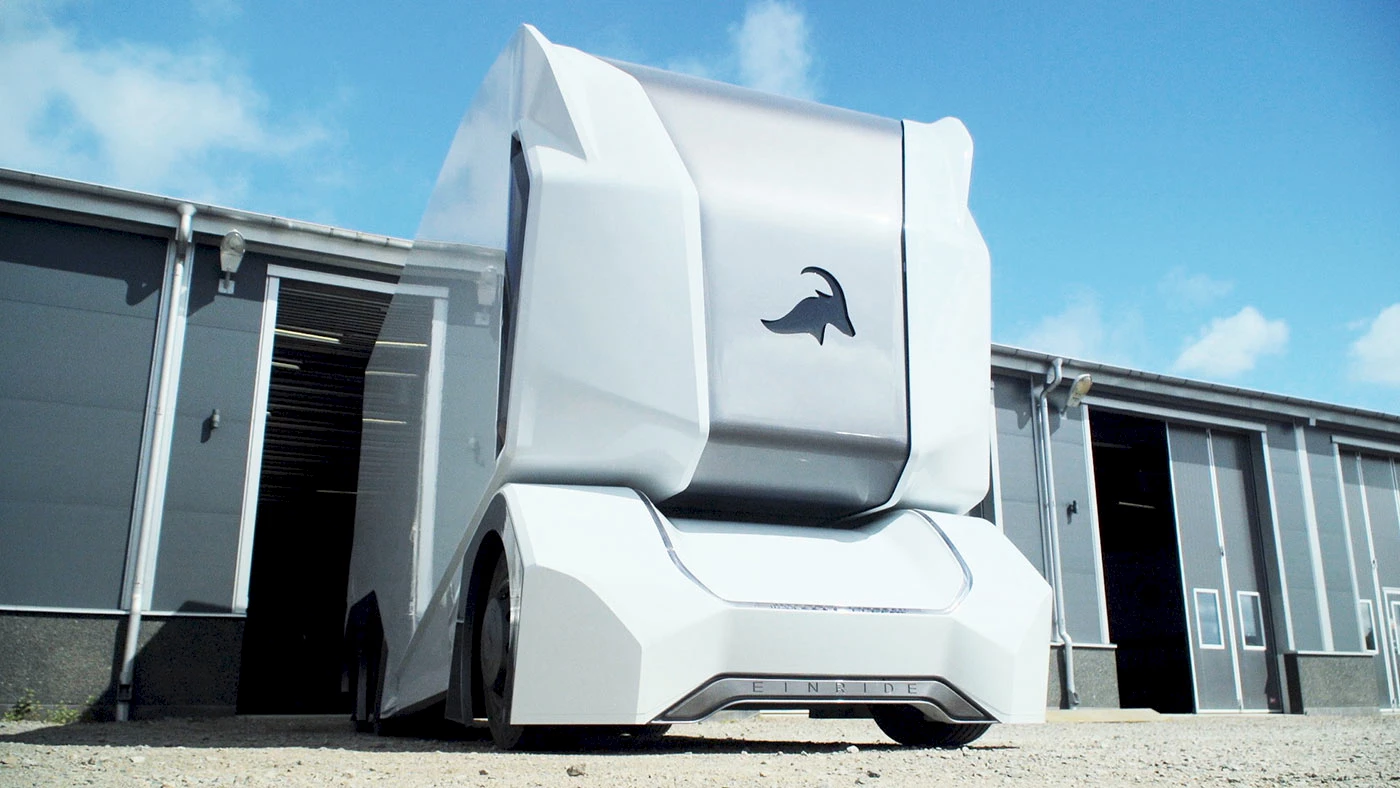
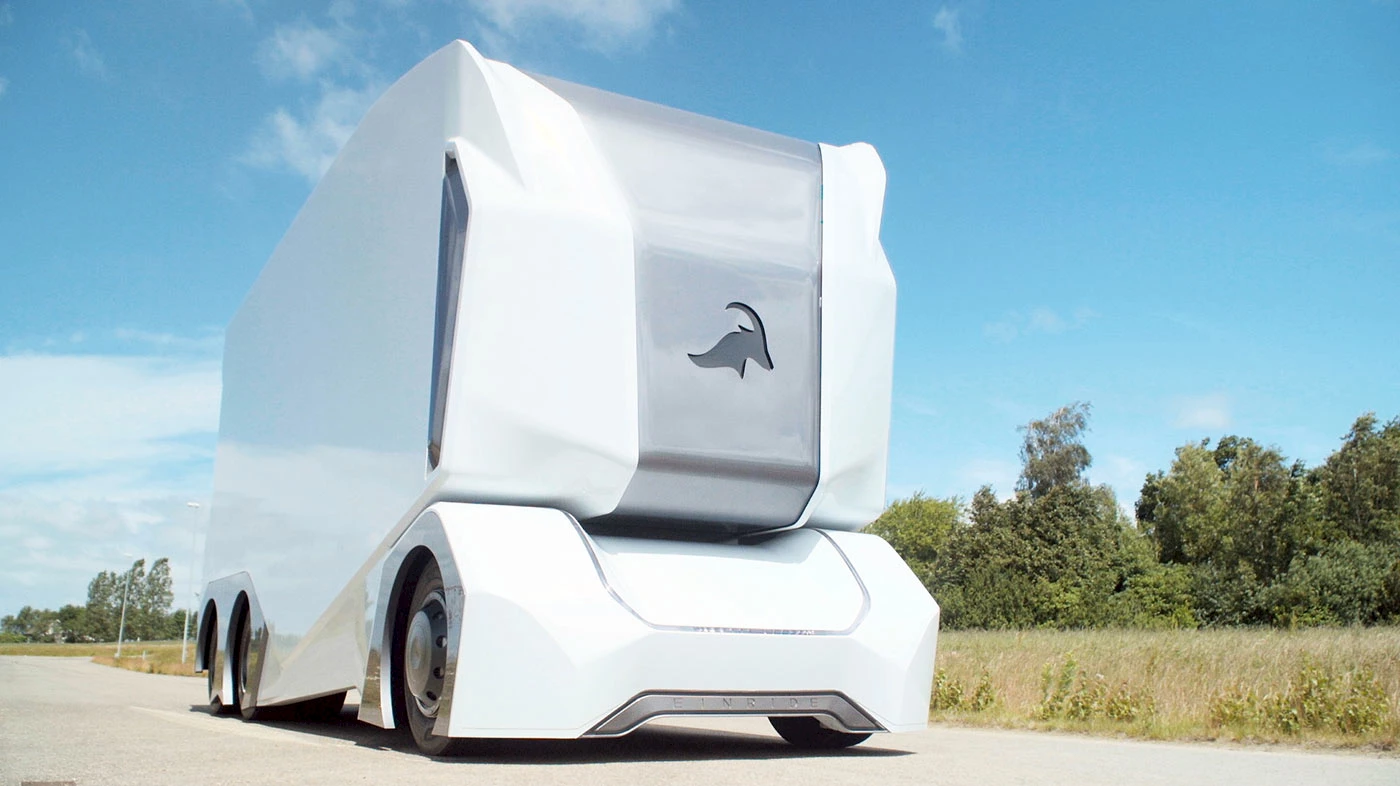
T-Pod prototype. © Einride.
Swedish trucking company Einride unveiled its T-Pod prototype, a cabless truck that will revolutionize the driverless transportation of goods. The 7-metre truck can carry 15 standard pallets over 200km between charges, operating fully autonomously on highways and by remote-control from a control centre on city streets. By 2020, the company expects to have 200 T-Pods operating on highway E6 between Göteborg and Helsingborg, in Sweden, hauling 2 million pallets of goods per year. Einride’s potential savings are of a financial and environmental order: trucking alone accounts for one-quarter of all GHG emissions (in North America).
⇨ TechCrunch, “This quirky autonomous pod wants to change the way we haul freight.”
Squirrel recognition with the Raspberry Pi 3

Bulb monster. © iStock.
Ofer Dekel is a researcher at Microsoft, in Redmond, Washington. Dekel has a problem: squirrels are feasting on flower bulbs and bird seed in his backyard — a problem experienced by most North-American homeowners. Dekel has developed a solution that isn’t currently within everyone’s reach: a model for the visual recognition of squirrels for the Raspberry Pi 3, where an algorithm identifies the squirrels, triggering the sprinkler system. Dekel has put together a multidisciplinary team to develop a toolbox of Machine Learning tools and software to embed artificial intelligence on small-scale systems such as the Raspberry Pi. The challenge is that today’s hardware-intensive learning algorithms are incompatible with small, limited-capacity devices; Dekel’s team is working on “compressing” deep neural networks to fit smaller systems. Early previews of the software are available for download on GitHub.
⇨ Next at Microsoft, “AI’s big leap to tiny devices opens world of possibilities.”
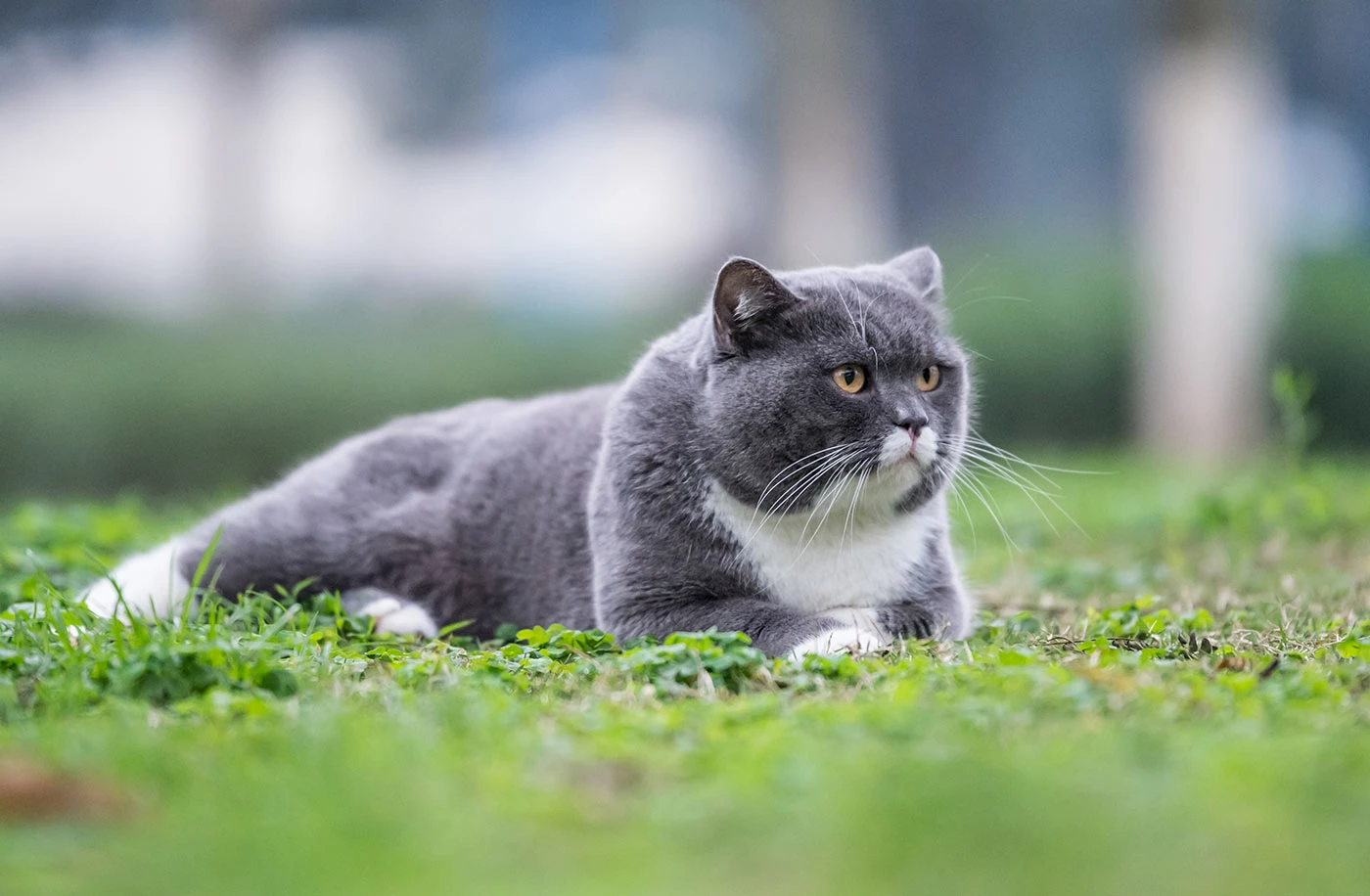
Low-tech solution. © iStock.
MetaLimbs arms
Japanese researchers at the University of Tokyo’s Inami Hiyama lab are working on robotic arms that attach to users’ backs and lend a helping hand when their own don’t suffice. Wearers control the extra arms, called MetaLimbs, with their feet and knees, thanks to flexion sensors. The team has also developed sensors for users to feel haptic sensations, allowing them to know when an object is in place and grabbing it with the robotic hand by curling their toes. This could come in handy when you’re called on to play the Indian god Shiva Nataraja at the next pageant…
⇨ YouTube, “Multiple Arms Interaction Metamorphism.”
Nokia 3310, Trump-Putin edition
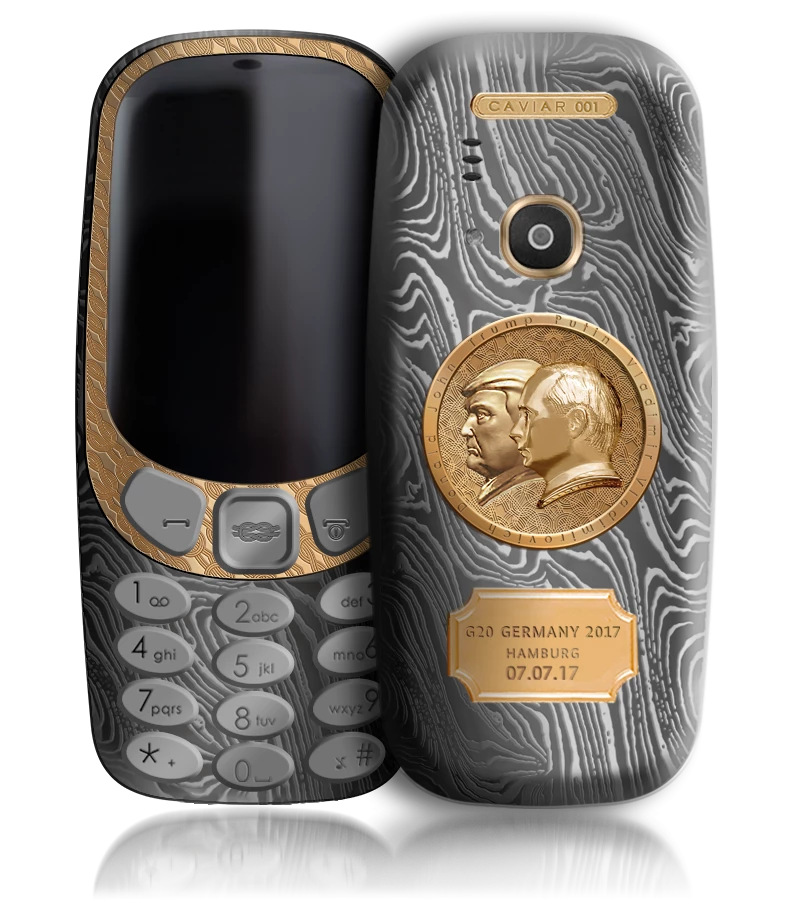
Trump-Putin Nokia 3310. © Caviar.
Russian device producer Caviar has become an arbiter in tasteful phones. Just in time for the G20 summit in Hamburg, where Donald Trump and Vladimir Putin meet for the first time, Caviar has unveiled its magnificent Nokia 3310, featuring a Damascus titanium skin and a gold medallion with the double profile of the two heads of state. Both presidents are looking in the same direction to symbolize “a shared desire for progress in Russian-American relations”. The device is available for the most reasonable price of 149,000 rubles, or CA$3,175. Want a phone with more contemporary technology? This slick packaging is also available for the iPhone7 and 7+.
⇨ TechCrunch, “Make your Nokia 3310 great again with a special $2,500 Putin-Trump gold and titanium edition.”
Keymu, the keyring console
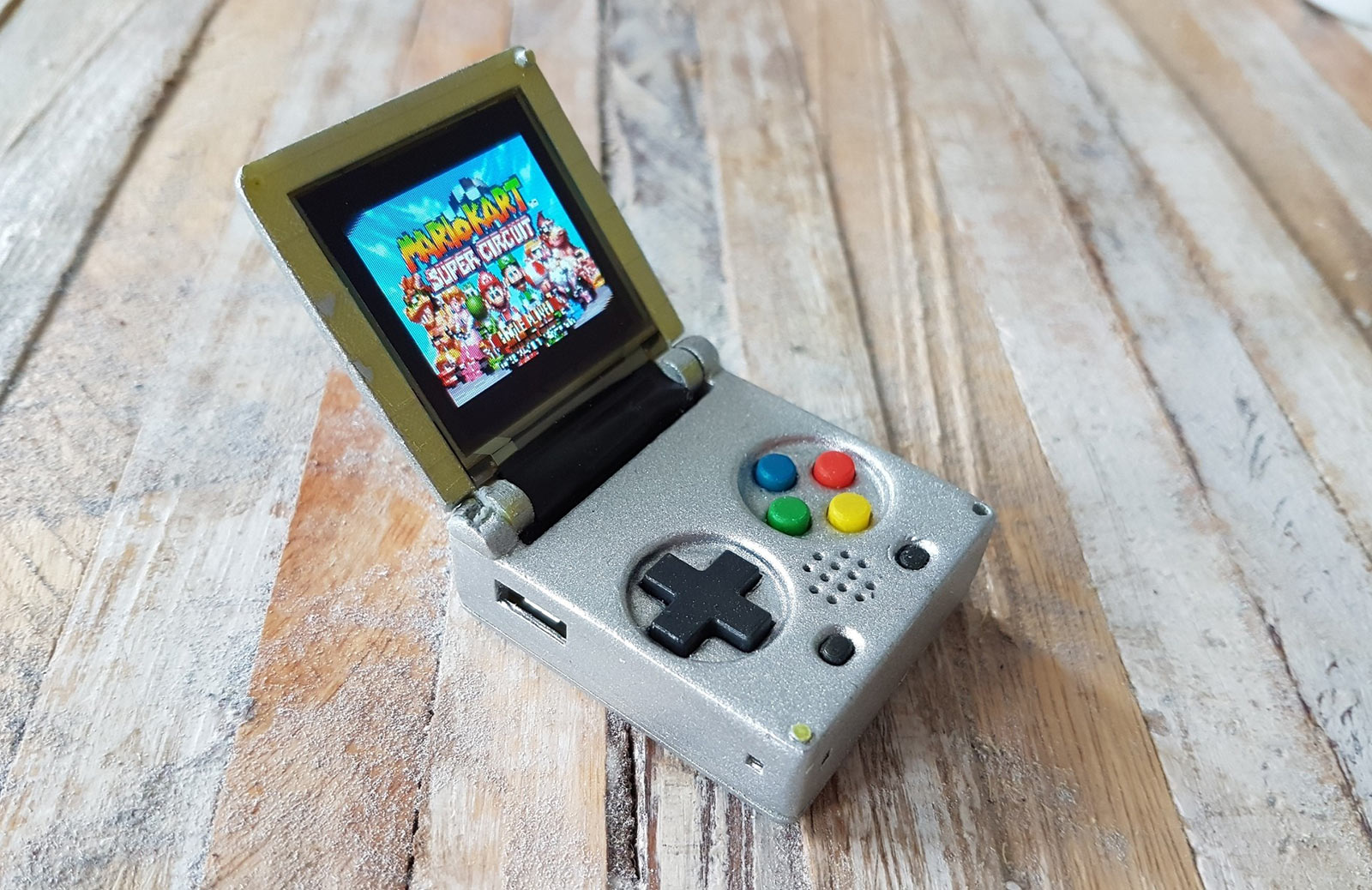
Keymu. © c.Invent.
Does the mini Super NES, unveiled ten days ago, still feel too bulky? The keychain-sized Keymu may be for you. This ultra-mini Game Boy-style console features a 1.5-inch OLED screen and an Intel Edison processor. The hitch? You’ll have to build it yourself. Detailed instructions are available on Hackaday.
⇨ Mashable, “Tiny keychain-sized Game Boy is infinitely better than the SNES Classic.”
